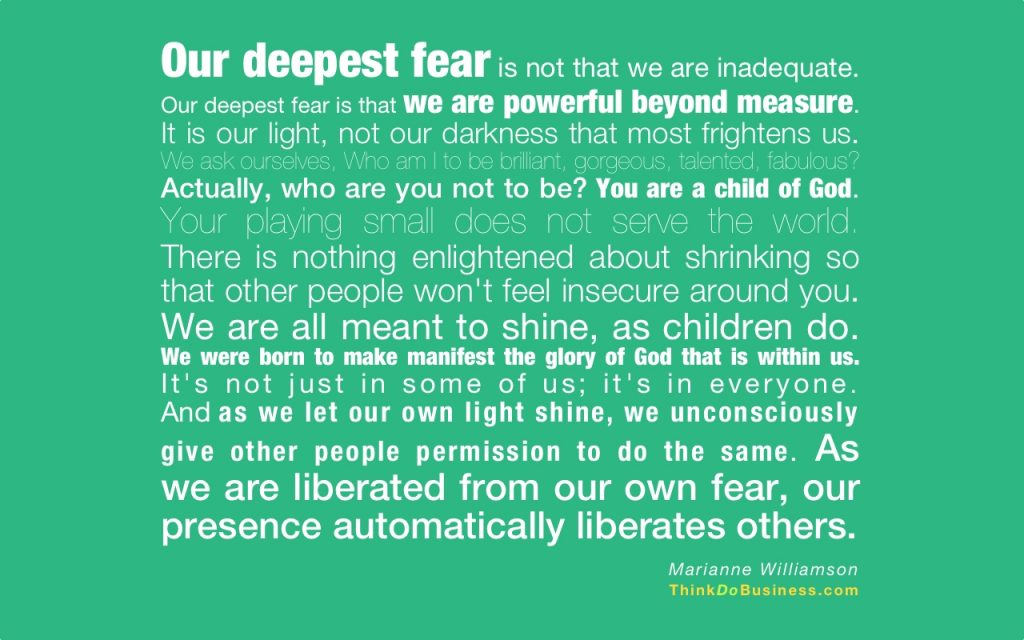Perfect Love Casteth Out Fear – Dieter F. Uchtdorf (4/2017)
Below is the text from President Dieter F. Uchtdorf’s talk from April 2017 General Conference called, “Perfect Love Casteth Out Fear.” Additionally (not part of President Uchtdorf’s words) are bullet points that summarize principles, cautions, and actions from the talk. The bulleted comments are not intended to bring out all principles, cautions and actions from the talk and they represent the thoughts and beliefs of our writers and not President Uchtdorf himself. Although we hope you may learn from our comments and our methods, we also hope that in your study you will follow the guidance from Moroni to know and understand truth for yourself, which in our opinion, includes how truth should be applied in your life and circumstances at this time. That understanding comes through the Holy Ghost. May you feel His guidance and have courage to follow where He leads.
Talk Other Resources Footnotes Summary Sheet
Perfect Love Casteth Out Fear by Dieter F. Uchtdorf
My beloved brothers and sisters, dear friends, what a privilege and joy it is to meet as a worldwide Church united in our faith and love for God and His children.
I am especially grateful for the presence of our beloved prophet, Thomas S. Monson. President, we will always take to heart your words of direction, counsel, and wisdom. We love you, President Monson, and we always pray for you.
Years ago, when I was serving as stake president in Frankfurt, Germany, a dear but unhappy sister approached me at the end of one of our stake meetings.
“Isn’t it terrible?” she said. “There must have been four or five people sound asleep during your talk!”
I thought for a moment and answered, “I am pretty sure that church sleep is among the healthiest of all sleeps.”
My wonderful wife, Harriet, overheard this casual exchange and later mentioned that it was one of the nicest answers I had ever given.
The Great Awakening
A few hundred years ago in North America, a movement called the “Great Awakening” spread across the countryside. One of its primary objectives was to awaken the people who appeared to be asleep regarding spiritual matters.
Young Joseph Smith was influenced by the things he heard from preachers who were part of this religious awakening. It is one of the reasons he decided to seek earnestly the will of the Lord in private prayer.
These preachers had a dramatic, emotional preaching style, with sermons that were known for their heavy emphasis on the fiery terrors of hell that await the sinner.1 Their speeches didn’t put people to sleep—but they may have caused a few nightmares. Their purpose and pattern seemed to be to frighten people into church.
Fear as Manipulation
Historically, fear has often been used as a means to get people to take action. Parents have used it with their children, employers with employees, and politicians with voters.
Experts in marketing understand the power of fear and often employ it. This is why some advertisements seem to carry the implicit message that if we fail to buy their breakfast cereal or miss out on the newest video game or cell phone, we run the risk of living a miserable life, dying alone and unhappy.
We smile at this and think we would never fall for such manipulation, but we sometimes do. Worse, we sometimes use similar methods to get others to do what we want.
My message has two purposes today: The first is to urge us to contemplate and consider the extent to which we use fear to motivate others—including ourselves. The second is to suggest a better way.
The Problem with Fear
First, let us address the problem with fear. After all, who among us has never been compelled by fear to eat better, wear a seat belt, exercise more, save money, or even repent of sin?
It is true that fear can have a powerful influence over our actions and behavior. But that influence tends to be temporary and shallow. Fear rarely has the power to change our hearts, and it will never transform us into people who love what is right and who want to obey Heavenly Father.
- Fear is a powerful motivator.
- Fear as a motivator is temporary and limited.
People who are fearful may say and do the right things, but they do not feel the right things. They often feel helpless and resentful, even angry. Over time these feelings lead to mistrust, defiance, even rebellion.
- Fear leads to helplessness, resentment, and anger. Then to mistrust, defiance, even rebellion.
- Fear motivates people to act a certain way, but it may not change their feelings.
Unfortunately, this misguided approach to life and leadership is not limited to the secular world. It grieves me to hear of Church members who exercise unrighteous dominion—whether in their homes, in their Church callings, at work, or in their daily interactions with others.
Often, people may condemn bullying in others, yet they cannot see it in themselves. They demand compliance with their own arbitrary rules, but when others don’t follow these random rules, they chasten them verbally, emotionally, and sometimes even physically.
The Lord has said that “when we … exercise control or dominion or compulsion upon the souls of the children of men, in any degree of unrighteousness, … the heavens withdraw themselves [and] the Spirit of the Lord is grieved.”2
- The Holy Ghost withdraws if we excise control over another person “in any degree of unrighteousness”
There may be moments when we are tempted to justify our actions by believing that the end justifies the means. We might even think that to be controlling, manipulative, and harsh will be for the good of others. Not so, for the Lord has made it clear that “the fruit of the Spirit is love, joy, peace, longsuffering, gentleness, goodness, faith, meekness, [and] temperance.”3
- When using fear to control others the ends DO NOT justify the means. (Fear may get quick results, but not positive end results.)
- The Lord’s way is love, joy, peace, longsuffering, gentleness, goodness, faith, meekness, and temperance.
A Better Way
The more I come to know my Heavenly Father, the more I see how He inspires and leads His children. He is not angry, vengeful, or retaliatory.4 His very purpose—His work and His glory—is to mentor us, exalt us, and lead us to His fulness.5
- God inspires and leads.
- Anger, vengeance, and retaliation are not God’s way.
- God’s intention is to mentor and lead us to be the best we can be. (His desire is for lasting change and he uses perfect methods. So if we want lasting change in ourselves or others, use His methods.)
- God wants us to have all that He has.
God described Himself to Moses as “merciful and gracious, longsuffering, and abundant in goodness and truth.”6
- God is merciful, gracious, longsuffering, full of goodness and truth.
Our Father in Heaven’s love for us, His children, surpasses by far our ability to comprehend.7
- God loves us. This is part of His motivation for how He associates with us. (It may be insightful to ponder how God’s love and desire for us to be the best we can is the driving force behind all aspects of the gospel, the organization of the church, and each commandment He has given us.)
Does this mean that God condones or overlooks behaviors that run contrary to His commands? No, definitely not!
- Love does not mean accepting or overlooking negative behavior.
But He wants to change more than just our behaviors. He wants to change our very natures. He wants to change our hearts.
- There is more involved in improvement and change than changing behavior alone.
He wants us to reach out and take firm hold of the iron rod, confront our fears, and bravely step forward and upward along the strait and narrow path. He wants this for us because He loves us and because this is the way to happiness.
- Our behavior doesn’t change God’s love for us or His desire for us to be our best self.
- God shows us the way to happiness.
- Faithfully following God’s teachings, overcoming fears, and courageously living the gospel is the way to happiness.
So, how does God motivate His children to follow Him in our day?
He sent His Son!
God sent His Only Begotten Son, Jesus Christ, to show us the right way.
God motivates through persuasion, long-suffering, gentleness, meekness, and love unfeigned.8 God is on our side. He loves us, and when we stumble, He wants us to rise up, try again, and become stronger.
He is our mentor.
He is our great and cherished hope.
He desires to stimulate us with faith.
He trusts us to learn from our missteps and make correct choices.
This is the better way!9
- Jesus Christ is our example and mentor.
- We can have hope through Christ.
- God wants us to learn from our mistakes.
What of the Evils of the World?
One of the ways Satan wants us to manipulate others is by dwelling upon and even exaggerating the evil in the world.
- Focusing on the negative is a fear motivator.
Certainly our world has always been, and will continue to be, imperfect. Far too many innocent people suffer because of circumstances of nature as well as from man’s inhumanity. The corruption and wickedness in our day are unique and alarming.
But in spite of all this, I wouldn’t trade living in this time with any other time in the history of the world. We are blessed beyond measure to live in a day of unparalleled prosperity, enlightenment, and advantage. Most of all, we are blessed to have the fulness of the gospel of Jesus Christ, which gives us a unique perspective on the world’s dangers and shows us how to either avoid these dangers or deal with them.
When I think of these blessings, I want to fall to my knees and offer praises to our Heavenly Father for His never-ending love for all of His children.
- You can see bad and you can see good depending what you look for.
- The gospel gives us a unique perspective of the challenges of life and how to handle them. (President Uchtdorf talked about this in another talk about the Plan of Happiness. See our study group posts about that talk.)
- Give thanks to God for His love.
I don’t believe God wants His children to be fearful or dwell on the evils of the world. “For God hath not given us the spirit of fear; but of power, and of love, and of a sound mind.”10
He has given us an abundance of reasons to rejoice. We just need to find and to recognize them. The Lord often reminds us to “be not afraid,” to “be of good cheer,”11 and to “fear not, little flock.”12
- Fear is not of God.
- God wants us to focus on the good.
The Lord Will Fight Our Battles

Brothers and sisters, we are the Lord’s “little flock.” We are the Saints of the latter days. Inherent in our name is the commitment to look forward to the Savior’s return and prepare ourselves and the world to receive Him. Therefore, let us serve God and love our fellowmen. Let us do this with a natural confidence, with humility, never looking down on any other religion or group of people. Brothers and sisters, we are charged with studying the word of God and heeding the voice of the Spirit, that we may “know the signs of the times, and the signs of the coming of the Son of Man.”13
- We should have hope in the fact the Savior will come to earth again. We should prepare ourselves, and the world, for that day.
- What is “natural confidence?”
We are, therefore, not ignorant of the challenges of the world, nor are we unaware of the difficulties of our times. But this does not mean that we should burden ourselves or others with constant fear. Rather than dwelling on the immensity of our challenges, would it not be better to focus on the infinite greatness, goodness, and absolute power of our God, trusting Him and preparing with a joyful heart for the return of Jesus the Christ?
- Knowing or being aware of something is different than fear. (We don’t have to be ignorant to avoid fear. In fact, this isn’t about avoiding fear. It is about facing it and moving forward past it.)
- Focus on the goodness of God.
- Actively prepare for the 2nd coming.
As His covenant people, we need not be paralyzed by fear because bad things might happen. Instead, we can move forward with faith, courage, determination, and trust in God as we approach the challenges and opportunities ahead.14
- Fear paralyzes people.
- Approach opportunities and challenges with faith, courage and determination. (If we are in patterns of fear we may not know how to approach opportunities with anything but fear. Look to courageous heroes, modern day or ancient. Think through what they might do if they were approaching the situation that you are.)
We do not walk the path of discipleship alone. “The Lord thy God … doth go with thee; he will not fail thee, nor forsake thee.”15
“The Lord will fight for you, and you shall hold your peace.”16
In the face of fear, let us find our courage, muster our faith, and have confidence in the promise that “no weapon that is formed against thee shall prosper.”17
Do we live in a time of peril and turmoil? Of course we do.
God Himself has said, “In the world ye shall have tribulation: but be of good cheer; I have overcome the world.”18
Can we exercise the faith to believe and to act accordingly? Can we live up to our commitments and sacred covenants? Can we keep the commandments of God even in challenging circumstances? Of course we can!
We can because God has promised, “All things shall work together for your good, if [you] walk uprightly.”19 Therefore, let us set aside our fears and live instead with joy, humility, hope, and a bold confidence that the Lord is with us.
- We are not alone. God is on our side.
- Have courage, faith and confidence because God can overcome all.
- We can be successful.
Perfect Love Casteth Out Fear
My beloved friends, my dear brothers and sisters in Christ, if we ever find ourselves living in fear or anxiety, or if we ever find that our own words, attitudes, or actions are causing fear in others, I pray with all the strength of my soul that we may become liberated from this fear by the divinely appointed antidote to fear: the pure love of Christ, for “perfect love casteth out fear.”20
- We do not need to be afraid. There is another way. (Think of movies or stories where someone has been poisoned and they, along with their friends and allies, frantically search for the antidote. Fear is a poison of sorts and we’ve just been told that there is an antidote. It will probably take some time and effort to get and apply the antidote. But we know it’s there. Find it! As if your life depended on it.)
Christ’s perfect love overcomes temptations to harm, coerce, bully, or oppress.
Christ’s perfect love allows us to walk with humility, dignity, and a bold confidence as followers of our beloved Savior. Christ’s perfect love gives us the confidence to press through our fears and place our complete trust in the power and goodness of our Heavenly Father and of His Son, Jesus Christ.
In our homes, in our places of business, in our Church callings, in our hearts, let us replace fear with Christ’s perfect love. Christ’s love will replace fear with faith!
- Love overcomes harm, coercion, bullying and oppression. (This is something to really think about. This doesn’t necessarily mean that to get out of an oppressive situation we need to love our oppressor enough so they’ll change. That often isn’t the right answer. But love can still help us in that situation. We can know that God loves us. We can love ourselves and know we’re worth fighting for. And then Christ’s perfect love can help us heal and move forward. Love can also help us overcome our desire to mistreat someone else.)
- Through Christ’s love we can have humility, dignity, bold confidence, and faith.
- Christ’s love is how we replace fear with faith.
His love will enable us to recognize, trust, and have faith in our Heavenly Father’s goodness, His divine plan, His gospel, and His commandments.21 Loving God and our fellowmen will turn our obedience to God’s commandments into a blessing rather than a burden. Christ’s love will help us become a little kinder, more forgiving, more caring, and more dedicated to His work.
- Christ’s love helps us understand God, His plan for us and other key points of the gospel.
- Love changes our perspective.
As we fill our hearts with the love of Christ, we will awaken with a renewed spiritual freshness and we will walk joyfully, confidently, awake, and alive in the light and glory of our beloved Savior, Jesus Christ.
I testify, with the Apostle John, “There is no fear in [Christ’s] love.”22 Brothers and sisters, dear friends, God knows you perfectly. He loves you perfectly. He knows what your future holds. He wants you to “be not afraid, only believe”23 and “abide in his [perfect] love.”24 This is my prayer and blessing in the name of Jesus Christ, amen.
Other Resources (not from President Uchtdorf’s talk):
- Why It Will All Work Out – blog post from lds.org listing ways to overcome fear
- Our study group posts about God’s Plan based on a talk from President Uchtdorf helps us see how our knowledge of The Plan gives us a unique perspective about life.
- Our study group posts about God’s Love based on talks from Elder Christofferson and President Monson.
- Are You a Secret Agent? – do you know your mission and your special skills? Don’t let fear keep us hiding these things from the world and from ourselves.
- Amazing Things Song – a song about the power of faith. It’s fitting for our discussion about overcoming fear because we’ve been told that faith is the opposite of fear. I love all the amazing examples of faith in the song. If such great things could happen to all those people because they had some faith, then I know that great things will come my way as I build my faith.
- Video of a Duck Family Jumping Off a Bridge – I’m sure that many of us can relate to those little ducklings who are standing at the edge of the bridge, vulnerable, nervous, and perhaps even fearful. From their perspective there are quite a few problems with the situation and a big choice to make. But the mama duck was there telling them to push forward, to trust her, that it would be ok. That is the direction, comfort and guidance that is available through Jesus Christ and his teachings. One by one each of those little ducks took a leap of faith. And the more we come to know and trust Christ we can too.

Footnotes (from President Uchtdorf’s talk):
-
George Whitefield and Jonathan Edwards are two prominent examples of this kind of preacher.
-
On one occasion, the Savior wanted to enter a village of the Samaritans, but the people rejected Jesus and would not receive Him into their village. Two of His disciples were deeply offended by this and asked, “Lord, do You want us to command fire to come down from heaven and consume them?” Jesus answered with this caution: “You do not know what manner of spirit you are of. For the Son of Man did not come to destroy men’s lives but to save them” (see Luke 9:51–56, New King James Version [1982]).
-
See Moses 1:39; see also Ephesians 3:19.
-
See Ephesians 3:19.
-
See Doctrine and Covenants 121:41. Surely if God expects us, His mortal children, to behave this way toward each other, He—a perfect being possessed of every virtue—would be the model for such behavior.
-
The premortal Council in Heaven is an excellent case study that demonstrates the character of God. There our Heavenly Father presented His plan for our eternal progression. Key elements of that plan included agency, obedience, and salvation through the Atonement of Christ. Lucifer, however, proposed a different approach. He guaranteed that all would obey—none would be lost. The only way to accomplish this would be through tyranny and force. But our loving Heavenly Father would not permit such a plan. He valued the agency of His children. He knew that we must make mistakes along the way if we are to truly learn. And that is why He provided a Savior, whose eternal sacrifice could cleanse us of sin and permit our entry back into the kingdom of God.
When our Father in Heaven saw that many of His beloved children were seduced by Lucifer, did He force them to follow His plan? Did He intimidate or threaten those who were making such a terrible choice? No. Our all-powerful God could surely have stopped this rebellion. He could have forced His will upon the dissenters and made them comply. But instead, He allowed His children to choose for themselves.
-
See, for example, Joshua 1:9; Isaiah 41:13; Luke 12:32; John 16:33; 1 Peter 3:14; Doctrine and Covenants 6:36; 50:41; 61:36; 78:18.
-
Moses’s counsel to the people of his day still applies: “Do not be afraid. … See the salvation of the Lord, which He will accomplish for you today” (Exodus 14:13, New King James Version).
-
Exodus 14:14, New King James Version.
-
Doctrine and Covenants 90:24; see also 2 Corinthians 2:14; Doctrine and Covenants 105:14.
-
Let us remember that the Savior came not “into the world to condemn the world; but that the world through him might be saved” (John 3:17). In fact, “he doeth not anything save it be for the benefit of the world; for he loveth the world, even that he layeth down his own life that he may draw all men unto him” (2 Nephi 26:24).
-
1 John 4:18; see also 1 John 4:16.
to view or print click pop-out icon in upper right corner
